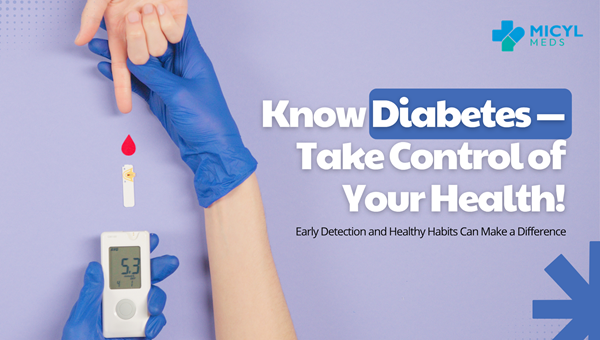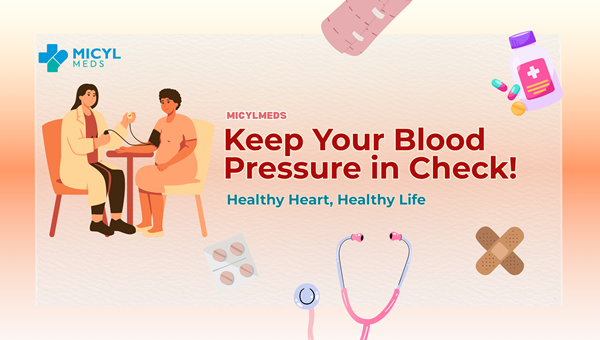Know Diabetes — Take Control of Your Health!
Aug 08, 2025
Understanding Diabetes: Causes, Symptoms, and Management
Diabetes is a common chronic condition affecting millions worldwide. It occurs when the body cannot properly regulate blood sugar (glucose) levels, leading to serious health complications if left unmanaged. Understanding diabetes is the first step toward prevention and effective control.
What is Diabetes?
Diabetes mellitus is a group of diseases characterized by high blood sugar levels. The two main types are:
-
Type 1 Diabetes: The body’s immune system attacks insulin-producing cells in the pancreas. It usually develops early in life and requires insulin therapy.
-
Type 2 Diabetes: The body becomes resistant to insulin or doesn’t produce enough. It is more common in adults and is often linked to lifestyle factors.
Common Symptoms of Diabetes
-
Frequent urination
-
Excessive thirst
-
Increased hunger
-
Unexplained weight loss
-
Fatigue
-
Blurred vision
-
Slow-healing wounds
If you experience any of these symptoms, consult a healthcare provider for evaluation.
Causes and Risk Factors
-
Family history of diabetes
-
Being overweight or obese
-
Sedentary lifestyle
-
Poor diet high in sugar and processed foods
-
Age (risk increases after 45)
-
High blood pressure and cholesterol
Managing Diabetes
Healthy Eating
Focus on a balanced diet rich in vegetables, whole grains, lean proteins, and healthy fats. Limit sugary snacks and drinks.
Regular Exercise
Physical activity helps control blood sugar, improves insulin sensitivity, and supports overall health.
Medication
Some people may require insulin or oral medications to maintain blood sugar levels.
Monitoring
Regular blood sugar testing helps manage diabetes and prevent complications.
Preventing Diabetes
Adopting a healthy lifestyle can significantly reduce the risk of Type 2 diabetes:
-
Maintain a healthy weight
-
Exercise regularly
-
Eat a nutritious diet
-
Avoid smoking and limit alcohol consumption
-
Regular health check-ups
Remember: Diabetes is manageable with the right knowledge and habits. Early detection and consistent care can lead to a healthy, fulfilling life.







